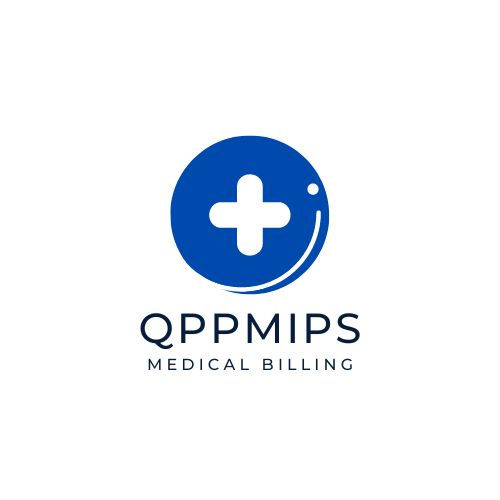In today’s healthcare landscape, Accountable Care Organizations (ACOs) play a pivotal role in improving patient outcomes while controlling costs. A crucial aspect of ACO operations is the reporting of quality measures, which enables providers to demonstrate their commitment to delivering high-quality care. However, navigating the complexities of quality reporting can be challenging for healthcare organizations. This article explores how providers can benefit from ACO quality measures reporting services and maximize their impact on patient care and financial performance.
Introduction to ACO Quality Measures Reporting Services
What are ACOs?
ACO Quality Measures Reporting are networks of healthcare providers who come together to coordinate care for patients. The goal of ACOs is to improve the quality of care while reducing unnecessary costs by aligning incentives and focusing on preventive care and population health management.
Importance of Quality Measures Reporting for ACOs
Quality measures are standardized metrics used to assess the effectiveness, safety, and efficiency of healthcare services. Reporting these measures is essential for ACOs to monitor their performance, identify areas for improvement, and demonstrate their value to payers and patients.
Understanding ACO Quality Measures Reporting Services
Overview of ACO Quality Measures
ACO quality measures cover various aspects of patient care, including preventive services, chronic disease management, and patient experience. These measures are often aligned with national quality initiatives and guidelines set forth by organizations such as the Centers for Medicare & Medicaid Services (CMS).
Importance of Accurate Reporting
Accurate reporting of quality measures is critical for ACOs to receive financial incentives and bonuses tied to performance metrics. It also helps ACOs identify gaps in care and implement targeted interventions to improve outcomes for patients.
Challenges in Reporting Quality Measures
Providers may face challenges such as data collection and aggregation, ensuring data integrity, and keeping up with evolving reporting requirements. These challenges can be exacerbated by the use of disparate electronic health record (EHR) systems and limited resources for quality improvement initiatives.
Benefits of ACO Quality Measures Reporting Services
Improved Patient Outcomes
By focusing on quality measures, ACOs can drive improvements in patient outcomes, such as reduced hospital readmissions, better management of chronic conditions, and increased adherence to evidence-based guidelines.
Enhanced Operational Efficiency
ACO quality measures reporting services can help streamline administrative processes, such as data collection, analysis, and submission, allowing providers to allocate more time and resources to patient care.
Financial Incentives
ACOs that meet or exceed performance benchmarks for quality measures may be eligible for financial incentives, including shared savings payments and bonuses from payers.
Meeting Regulatory Requirements
Reporting quality measures is often a requirement for participation in value-based payment models and accountable care contracts with government payers and commercial insurers.
How Providers Can Benefit from ACO Quality Measures Reporting Services
Access to Valuable Data Insights
ACO quality measures reporting services provide providers with access to actionable data insights, allowing them to identify trends, patterns, and areas for improvement in patient care delivery.
Streamlined Reporting Processes
By outsourcing quality measures reporting to specialized service providers, healthcare organizations can streamline reporting processes and reduce the administrative burden on internal staff.
Increased Reimbursements
Improving performance on quality measures can lead to higher reimbursements from payers, as ACOs may qualify for shared savings programs and other financial incentives tied to quality performance.
Enhanced Reputation and Patient Trust
Publicly reporting quality measures demonstrates a commitment to transparency and accountability, which can enhance the reputation of healthcare providers and build trust with patients and community stakeholders.
Choosing the Right ACO Quality Measures Reporting Service Provider
Factors to Consider
When selecting an ACO quality measures reporting service provider, healthcare organizations should consider factors such as expertise in quality reporting, technology capabilities, cost-effectiveness, and track record of success.
Case Studies or Examples of Successful Partnerships
Case studies or examples of successful partnerships between providers and quality measures reporting service providers can help illustrate the benefits of outsourcing reporting activities and achieving meaningful improvements in patient care and financial performance.
Best Practices for Maximizing the Benefits
Utilizing Technology Solutions
Investing in technology solutions, such as advanced analytics platforms and interoperable EHR systems, can help providers collect, analyze, and report quality measures more efficiently and accurately.
Continuous Improvement Strategies
Implementing continuous improvement strategies, such as regular performance monitoring, staff training, and stakeholder engagement, can help providers maintain high levels of quality and drive ongoing improvements in care delivery.
Collaboration and Communication
Collaborating with other healthcare organizations and community partners and communicating openly with patients can help providers address social determinants of health and achieve better outcomes for diverse patient populations.
Conclusion
In conclusion, ACO quality measures reporting services play a crucial role in helping providers deliver high-quality, cost-effective care while meeting regulatory requirements and maximizing financial incentives. By leveraging these services, healthcare organizations can access valuable data insights, streamline reporting processes, and ultimately improve patient outcomes and satisfaction.
FAQs
- What are ACO quality measures? ACO quality measures are standardized metrics used to assess the effectiveness, safety, and efficiency of healthcare services within accountable care organizations.
- How do ACO quality measures benefit healthcare providers? ACO quality measures benefit healthcare providers by providing valuable data insights, streamlining reporting processes, increasing reimbursements, and enhancing reputation and patient trust.
- What challenges do providers face in reporting ACO quality measures? Providers may face challenges such as data collection and aggregation, ensuring data integrity, and keeping up with evolving reporting requirements.
- How can providers ensure accurate reporting? Providers can ensure accurate reporting by investing in technology solutions, implementing continuous improvement strategies, and fostering collaboration and communication among stakeholders.


Leave a comment